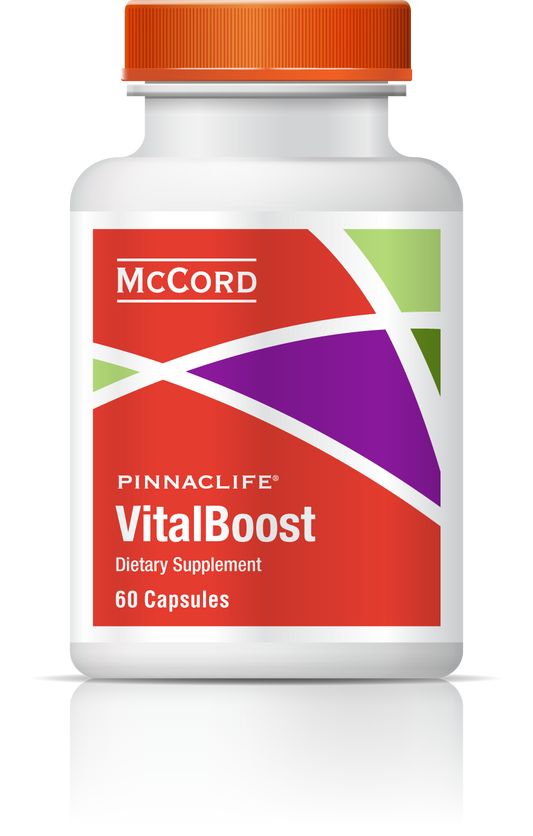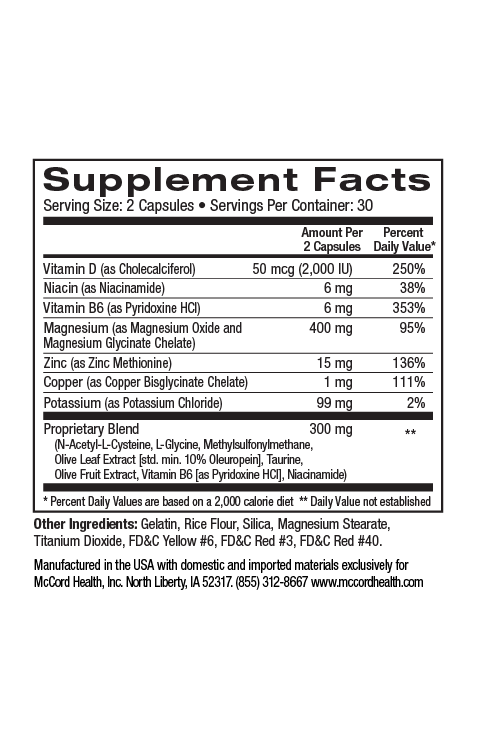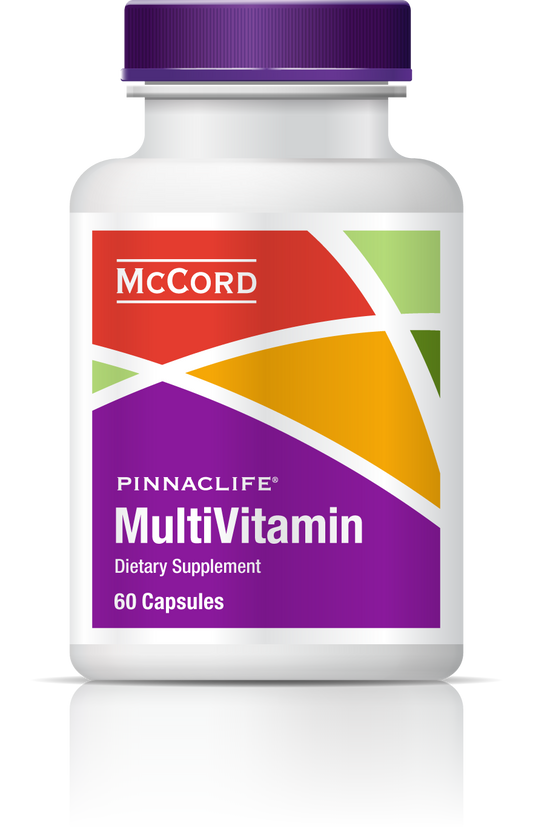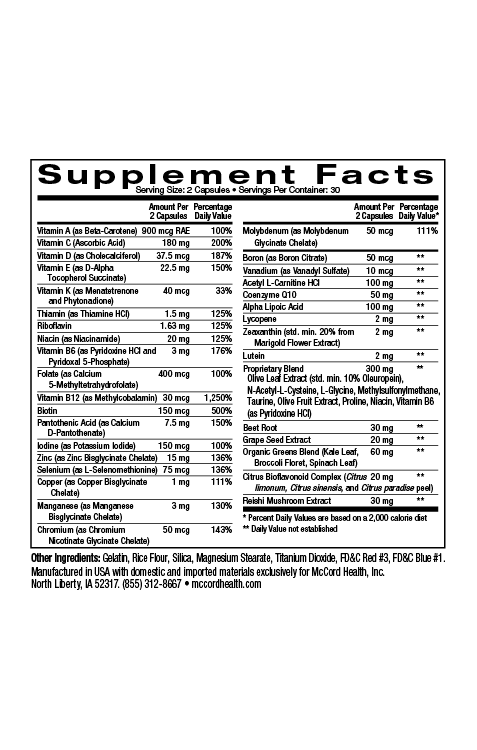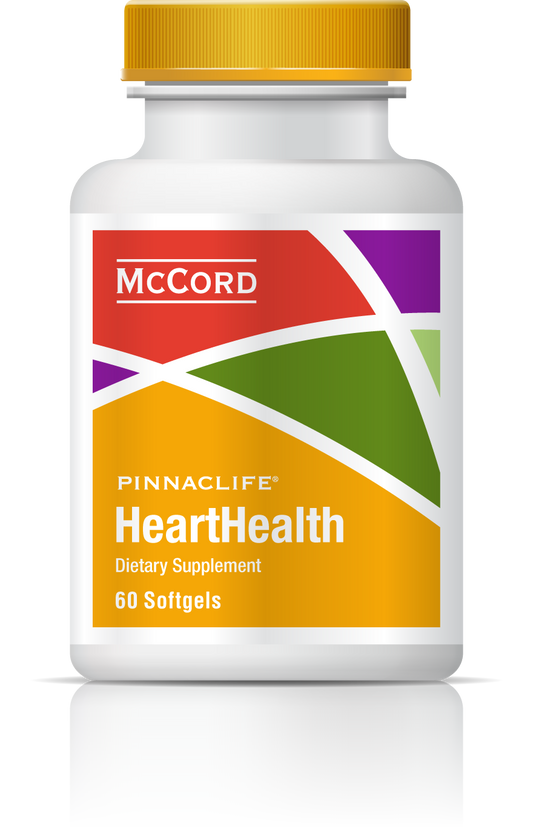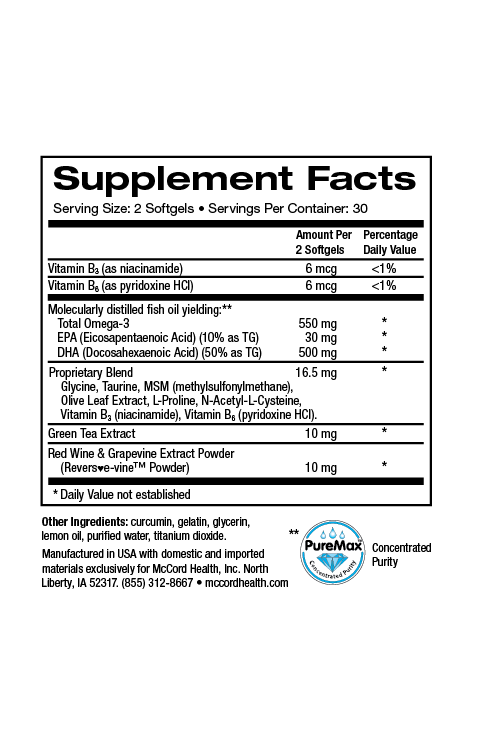The community of microbes in the gut known as the gut microbiome promotes processes critical for health. Microbiome imbalance (dysbiosis) may lead to inflammation and associated diseases. Fiber, as a food source for bacteria in the colon can contribute to gut microbiome stability, decreased inflammation and increased health. In addition, the intestinal barrier helps protect against bacterial invasion and systemic inflammation. Fiber enables normal beneficial gut bacteria to produce products that increase intestinal integrity. A key component in Proprietary Blend found in DigestiveHealth has also been shown to preserve the intestinal barrier and its functions.
- You have trillions of microbes in your gut that make up a complex community (microbiome)
- Fiber can promote a healthy microbiome
- Most Americans consume less than half the level of recommended daily fiber
- Fiber intake has been associated with decreased health issues
- The bacteria that use fiber as a food source in your colon produce compounds that decrease inflammation and help protect the intestine
- Proprietary Blend and its components can also help decrease inflammation and preserve the intestinal barrier
Your gut provides a home for trillions of microbes including bacteria that make up a complex community known as the gut microbiome in which members interact with each other, as well as intestinal cells promoting processes critical for health1. In this way, the beneficial bacteria are in symbiosis with their host (our bodies) and participate in many important functions including digestion (fermentation), the synthesis of vitamins, and the regulation of immune system processes as well as glucose and lipid metabolism1,2.
The ultimate symbiosis of gut microbes with the host is eubiosis (a healthy balance of microbes in the gut), however, dysbiosis or the disruption of this balance can also occur that may lead to inflammation and associated diseases including obesity, diabetes, cardiovascular disease, inflammatory bowel disease (IBD) and cancer, especially when inflammation is chronic (long-lasting). Dysbiosis can be caused by prolonged antibiotic use, toxins, stress, poor diet and certain health conditions and infections2-5. Many diseases and disorders have been associated with gut microbiome dysbiosis including Alzheimer’s and Parkinson’s disease, type 2 diabetes, cancer and autoimmune disorders including Type 1 diabetes and systemic lupus erythematosus (SLE)3,4,6,7.
Fiber is Important for a Healthy Gut Microbiome
In order to have a healthy gut microbiome, it’s important to have a varied diet that includes fiber like in Proprietary Blend DigestiveHealth to promote microbial diversity. In fact, high levels of gut microbial diversity have been found in healthy individuals in contrast to less healthy individuals with conditions such as obesity. High levels of microbial diversity are thought to help the gut resist stress as well as maintain microbiome stability and eubiosis due to microbial competition, which keeps pathogenic (disease-causing) microbes at bay3.
Unfortunately, many Americans eat too much highly processed food that lacks fiber and has been linked with poor health8-10. In fact, most Americans consume less than half of the recommended levels of daily fiber11. Proprietary Blend DigestiveHealth includes a soluble maltodextrin fiber that is slowly fermented in the colon so that it doesn’t cause the gas and bloating commonly found with equivalent doses of rapidly fermenting fibers like inulin or fructooligosaccharides (FOS)12,13. High dietary fiber intake has been associated with lower cardiovascular disease, stroke, hypertension, diabetes, obesity, asthma and healthy immune responses against influenza virus11,14,15.
The colon is the major site for fiber fermentation due to the fact that it has an increased transit time and suitable pH along with a lack of oxygen favoring the proliferation of specific bacteria. Dietary fiber is an important energy source for colon-residing bacteria. The anaerobic (require the absence of oxygen) bacteria in the colon metabolize complex carbohydrates5,16 including dietary fiber like in Proprietary Blend DigestiveHealth and produce important metabolic products including short chain fatty acids (SCFAs).
SCFAs are mainly composed of acetate, propionate and butyrate, and they play important roles in regulating host metabolism, the immune system and intestinal cell proliferation. They are found in high concentration in the colon where they are used as energy sources for intestinal cells. SCFAs act as signaling molecules and help regulate intestinal metabolism and inflammation. In fact, butyrate promotes normal intestinal cell growth and is anti-inflammatory2,3. Proprietary Blend in DigestiveHealth includes many important small molecules with anti-inflammatory activity including two potent polyphenols from olives, hydroxytyrosol and oleuropein, as well as methylsulfonylmethane (MSM), N-acetylcysteine (NAC) and taurine17-21.
Chronic Lack of Fiber May Cause Gut Barrier Damage
Another important way that the body (host) prevents microbial invasion into the intestine is by maintaining an intact mucus layer. Diets low in fiber lead to deterioration of the mucus layer, which enhances susceptibility to infection and the development of chronic inflammatory diseases. In fact, fiber and SFCAs stimulate mucus production and secretion from intestinal cells. However, without dietary fiber, the gut microbiota uses the glycoprotein-rich mucus layer as an energy source. Chronic lack of dietary fiber results in gut mucus barrier damage that is associated with mucus-degrading bacteria, including pathogens2.
Interestingly, SCFAs like butyrate can be transported in the blood via the portal vein and in this way convey effects on the liver and peripheral tissues. Acting as signaling molecules, SCFAs can regulate different biological processes in the gut and can also contribute to gut-brain and gut-liver interactions. Butyrate also improves the integrity of intestinal epithelial cells (IECs) by promoting tight junctions. This helps prevent bacteria and inflammatory bacterial components from entering the intestinal barrier (as with leaky gut syndrome), as well as the circulation2,3,22.
Hydroxytyrosol Restores Gut Barrier Integrity
Translocated bacteria and their inflammatory components including endotoxin that have entered the circulatory system and peripheral tissues have been associated with many diseases and health problems including sepsis and autoimmune disorders22,23,24. Hydroxytyrosol found in Proprietary Blend http://www.olivamine.com has been shown to restore intestinal barrier integrity and functions25. Providing your gut with optimal nutrition including fiber will keep your gut healthy, your intestinal microbiome properly balanced and will help protect your overall health. Proprietary Blend DigestiveHealth includes impeccably sourced ingredients that have undergone rigorous scientific review to prove we renew, restore and repair cells.
References
- Am J Clin Nutr 2018; 107: 965-983.
- Cell Host Microbe 2018; 23: 705-715.
- J Clin Nutr Metab 2017; 1(2): 1000111, 1-12.
- Microb Ecol Health Dis 2015; 26: 26191, 1-9.
- Nutrients 2013; 5: 1417-1435.
- Oxid Med Longev 2019; 2019: ID 4730539, 1-10.
- Ageing Res Rev 2018; 45: 53-61.
- BMJ Open 2016; 6: e009892, 1-8.
- BMJ 2019; 365: l1451, 1-14.
- BMJ 2019; 365: l1949, 1-11.
- Nutr Rev 2009; 67(4): 188-205.
- Am J Clin Nutr 2006; 83(6): 1321-1330.
- J Nutr Sci Vitaminol 2013; 59(4): 352-357.
- Nat Med 2014; 20: 159-166.
- Immunity 2018; 48(5): 992-1005.
- Microbiome 2019; 7(1): 91, 1-15.
- Planta Med 2011; 77: 1890-1897.
- Int J Mol Sci 2014; 15: 18508-18524.
- World Diabetes 2104; 5: 697-710.
- Biol Pharm Bull 2009; 32: 651-656.
- Amino Acids 1996; 10: 59-71.
- Gut 2018; 67: 1716-1725.
- Aliment Pharmacol Ther 2007; 25: 741-757.
- Fron Immunol 2017; 8: 598, 1-10.
- J Nutr. Biochem 2016; 30: 108-115.

